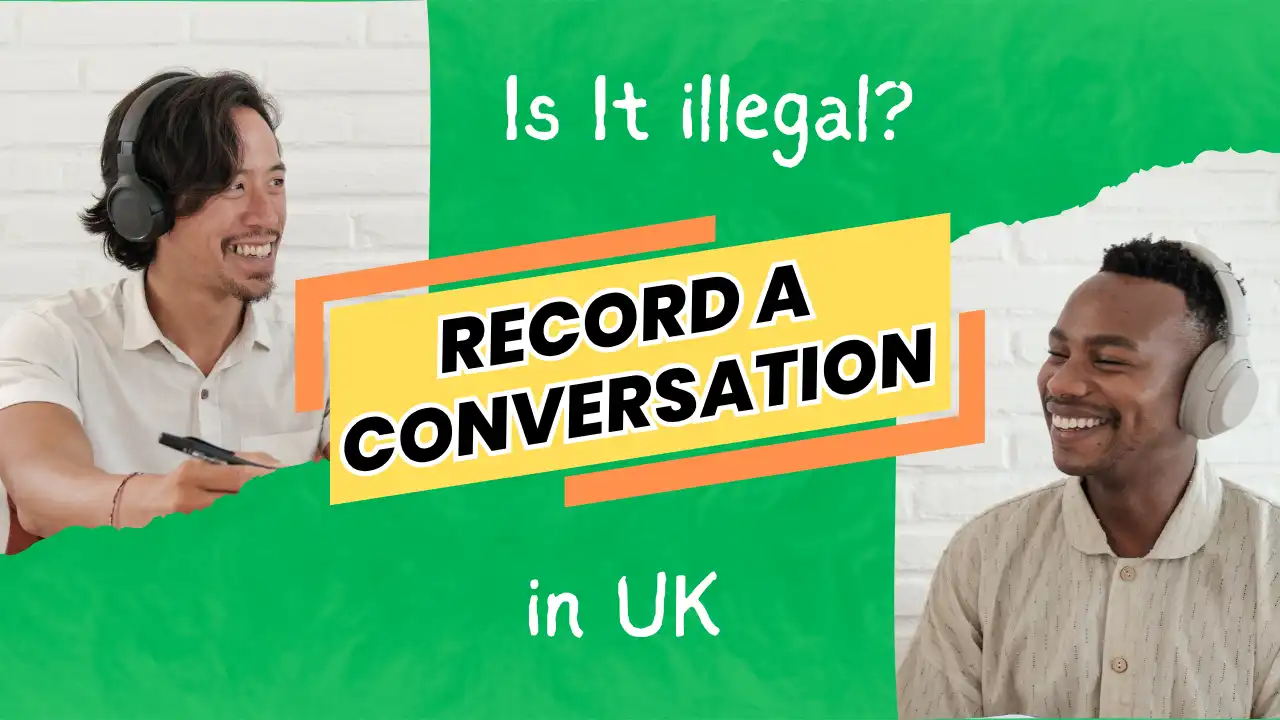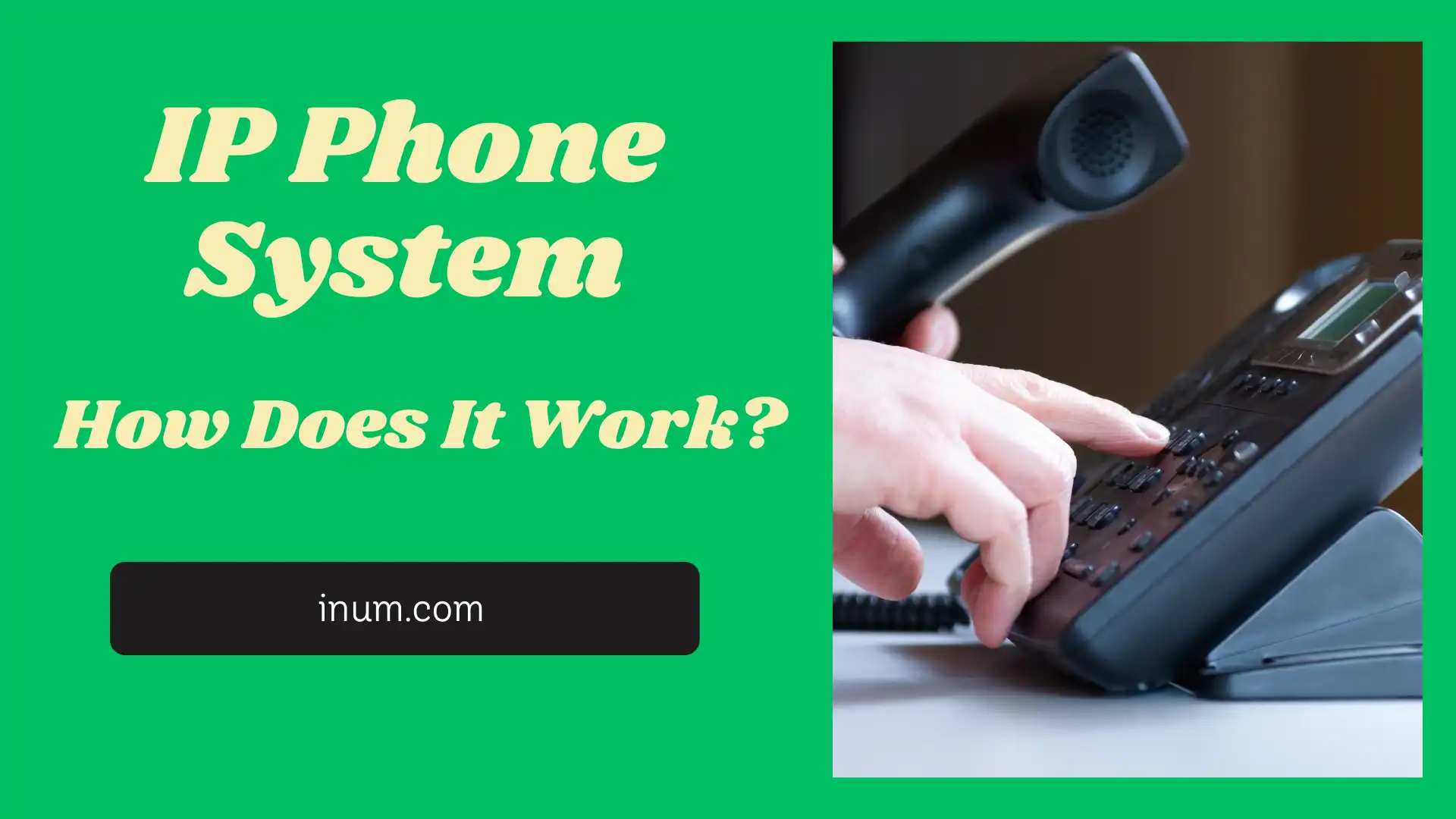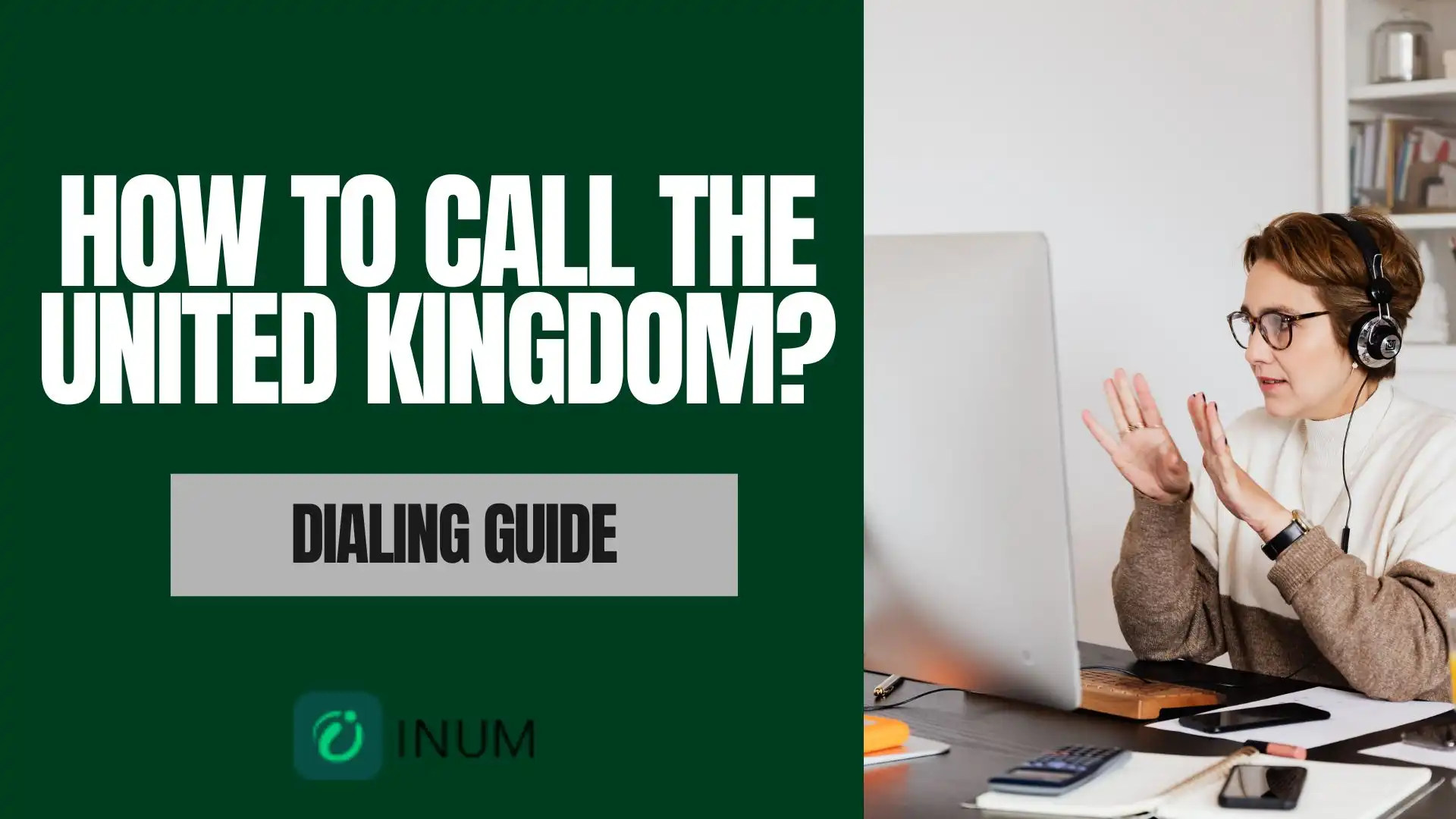With advancements in technology, recording conversations has become easier than ever before. In many situations, such as speaking with an unfamiliar number, handling business transactions (with proper consent), or gathering evidence in a criminal case, recording calls can be essential.
However, the legality of recording conversations varies from country to country. In this blog post, we’ll focus on the laws governing call and conversation recordings in the United Kingdom (UK). You’ll learn whether it is legal to record a conversation, how GDPR applies, and what role key legislation like the Data Protection Act 1998, Human Rights Act 1998, and the Telecommunications Regulations play.
We’ll also explore why UK law treats individuals differently from businesses when it comes to recording conversations. This guide will help you understand everything you need to know about call recording in the UK—legally and ethically.
Legal Framework on Recording Conversation in UK
In the United Kingdom, the primary laws regulating the taping of conversations are provided by the Regulation of Investigatory Powers Act 2000 (RIPA). Everyone should have a basic knowledge of the rules and regulations of RIPA to follow the law.
Besides this, there is the Data Protection Act 1998 and the Human Rights Act 1998. Above all, GDPR rules remain the law’s assertion in the UK legal discourse regarding recording conversations.
Regulation of Investigatory Powers Act 2000
The Regulation of Investigatory Powers Act (RIPA) is the primary legal act regulating communication interception in the United Kingdom. It highlights the legal laws under which it may be legal to eavesdrop on and record people’s conversations.
What is GDPR?

The General Data Protection Regulation (GDPR) was established in 2018 as the primary set of general data privacy and security laws. It affects many aspects of business today, especially data management and call recording procedures. The GDPR and the RIPA Act must be compared and contrasted to determine when one applies, and the other does not in the UK.
As we know, under RIPA, people in the UK are allowed to tap phones and record conversations. However, it is significant to acknowledge that disclosing such recorded information to a third party is unlawful. This is where GDPR comes into play to aid businesses in appropriate data-sharing practices.
GDPR is primarily data protection, giving individuals control of their data. It sets specific standards and guidelines regarding the employment of personal data, including recording conversations for business processes.
First, there are more than enough specific UK laws regarding data privacy that already contain clauses similar to the GDPR. Since GDPR deals with an individual’s privacy, the legislation is intrinsically linked to two other pieces of core UK legislation: Since GDPR deals with an individual’s privacy, the legislation is intrinsically linked to two other pieces of core UK legislation:
- Data Protection Act 1998
- Human Rights Act 1998
Consequently, under the Data Protection Act of 1998 and the relevant legislation amended in 2018, for an identifiable person in a corporate phone call to be recorded, the caller has to remind the secondary party about the use or utilization of the content derived from the call, seek permission from the other party and store the data in a secure yet retrievable place.
call recording laws that protect individuals
GDPR has rules regarding privacy, where recording personal communication through phone calls is legal in the UK and is regulated by RIPA. People can make recordings for personal use; therefore, they have not violated any law if someone records the calls.
But it is also significant to note that forwarding these recordings to third parties without the other party’s permission in the conversation is unlawful. To minimize any problems arising under GDPR, the recorded conversations must be protected from third-party access.
Individuals should follow the privacy standards and data protection laws to meet the requirements. At the same time, there are still many advantages of using call recording for keeping personal records and protecting oneself.
legal aspect of call recording for business
The United Kingdom law approves call recording without the caller’s consent for business relationships under some circumstances put forward by the Telecommunication Regulations of 2000. Some of these are;
- a form of documentation in business transactions,
- an assessment of quality assurance
- the confirmation of a company’s compliance with set legal provisions
- investigation and prevention or discovering criminal incidences
- probing into peculiar behaviours.
Customers can be advised to register with the Information Commissioner’s Office (ICO) and ensure their information is appropriately stored. Informing citizens that calls may be recorded is not mandatory, but an automated message is suggested. When recording business calls, GDPR demands that businesses provide evidence of how customer data will be managed efficiently and protected under the laws.
GDPR guidelines when recording phone calls:

To record phone calls and still fall within the provision of GDPR, one has to ensure that they are concerned with using the recorded data more than the recording process itself.
You can do this in the following ways:
i. Always Ask for Consent
It is important to note that this is the most important rule. Therefore, it is wise to ask permission to record the calls to safeguard your business. This refers to informing customers of your policy change or when they are about to be recorded.
Suppose you plan on sharing customers’ information with third parties for purposes affiliated with those with whom you have a business relationship. In that case, you must both request permission from your customers and let them know.
ii. Design a Specific Call Recording Training for GDPR Compliance
Staff should have a basic understanding of GDPR and how it applies to their daily tasks. Training should cover office scenarios like reading sensitive information over the phone, discarding personal data in follow-up communications, and failing to mention that a call is being recorded. Clear policies and procedures are essential to ensure full compliance.
iii. Securely Store Data
By now, you would have realized that sharing data is unadvisable and that any data sale is unlawful in most contexts. But what if somebody steals it? To minimize risks and prevent leakage of information belonging to anyone recorded in the call log, make sure to store the information in safe and encrypted locations.
Bottom Line - Recording Conversation in UK
In conclusion, recording conversations in the UK is legal—but only under specific conditions. For private individuals, it is generally lawful to record a call for personal use, provided all parties involved give their consent. However, sharing or distributing those recordings without permission could violate data protection laws, including the General Data Protection Regulation (GDPR) and the Human Rights Act.
Businesses are subject to stricter regulations. While they are permitted to record calls for reasons such as compliance, training, or security, they must inform participants and comply with privacy laws like RIPA (Regulation of Investigatory Powers Act) and the Data Protection Act. Despite Brexit, GDPR principles remain in force within the UK’s legal framework, so organizations must continue to uphold data protection standards.
Understanding these legal boundaries is essential to ensure your actions are lawful and respectful of others’ privacy. Whether you’re an individual or a business, staying informed about call recording laws can help you avoid legal complications and maintain trust.
FAQS- Record a Conversation in UK
You are allowed to do so mainly when someone has recorded you without your knowledge and permission. The right to claim when the recording violates your privacy is recommended to contact the Information Commissioner’s Office (ICO) or seek legal advice to understand the rights and possible legal actions.
Yes, recording the conversation with the doctor for personal purposes only is legal, but seeking the doctor’s permission is more professional. This will help address transparency since the doctor-patient relationship will still be good.
Recorded telephone calls and any form of recorded discussion can be used as admissible evidence in the UK courts, provided the details were lawfully acquired. If the recordings were made without consent, they might not be legally permissible. It is also crucial to recognize that your recordings must meet legal requirements to be admissible in court.
It is recommended to refer to the employee handbook or the contract signed between you and your employer to determine the workplace taping rules. If it is unclear, reach out to your HR or employer for further clarification on the policies in your workplace.
Recording family members without their permission is always unlawful and unadvisable because it erodes trust and may result in legal problems. If possible, getting consent is a good idea to avoid infringing on someone’s privacy and possible legal issues.



